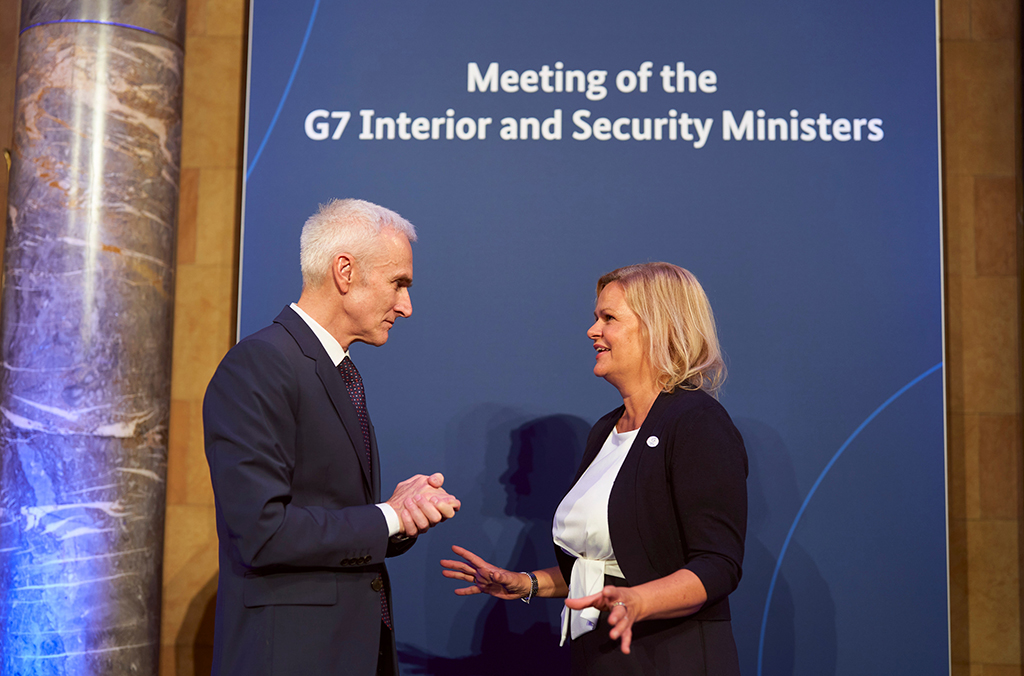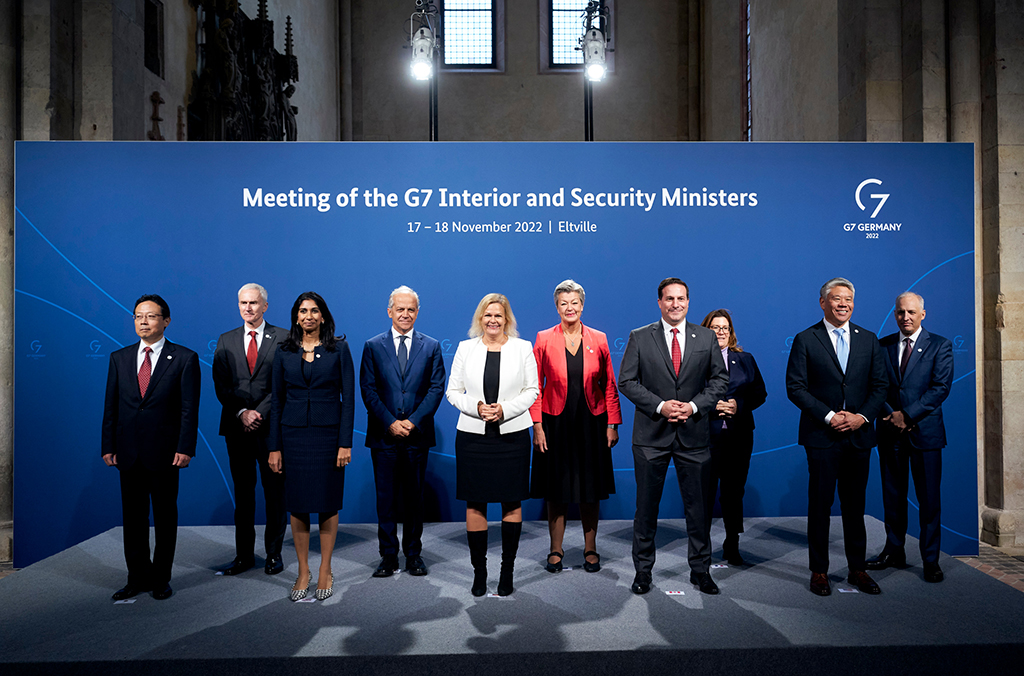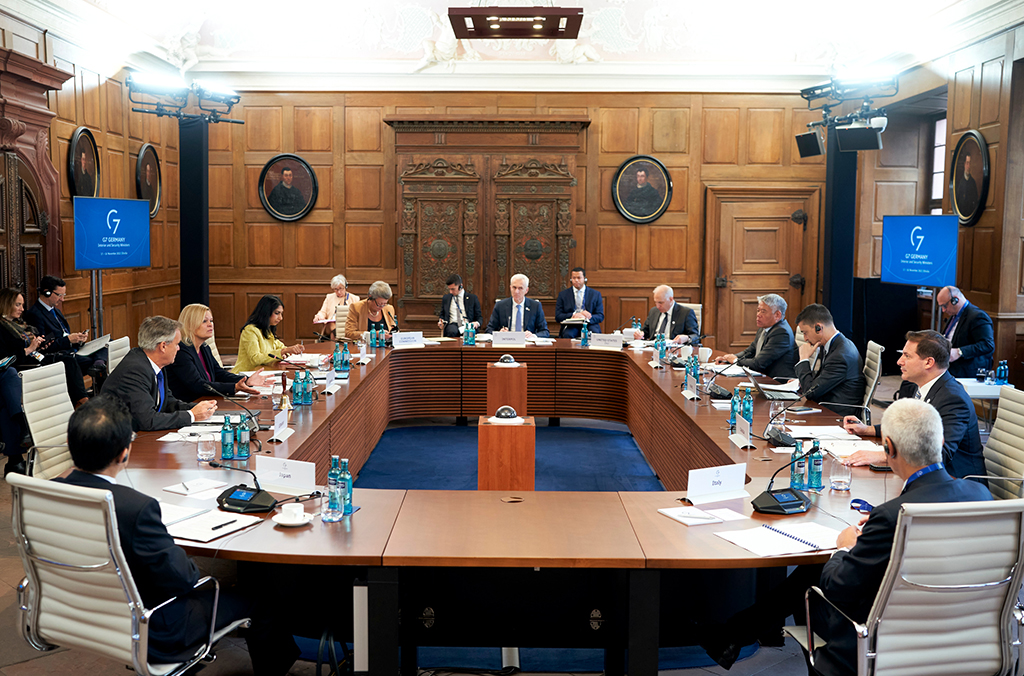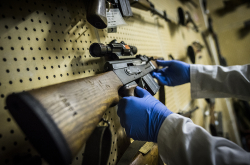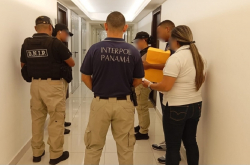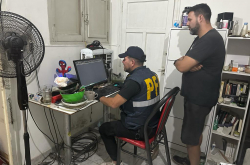WIESBADEN, Germany – The G7 Interior and Security Ministers meeting has ended with calls to intensify the fight against transnational serious and organized crime in close cooperation with INTERPOL.
The Ministers also reaffirmed their 2021 commitment to further develop INTERPOL’s tools and services, including ensuring all member countries have access to the tools they need, providing support and information where appropriate, and coordinating funding to avoid duplication.
An example of where global coordination is essential is combating online child abuse. INTERPOL’s International Child Sexual Exploitation (ICSE) database enables specialized investigators around the world to upload and compare child sexual abuse material to help identify victims and offenders and reveal overlapping investigations.
Victim identification
Currently 68 countries are connected to ICSE, and since its launch 13 years ago, the database has assisted in the identification of more than 31,000 victims and 14,000 offenders worldwide.
INTERPOL Secretary General Jürgen Stock said the sheer number of victims makes international cooperation essential in combating online child sexual exploitation and abuse.
“Any connected child or vulnerable individual is a potential victim.
“The online abuse market, especially live streaming, is global and growing fast. This means there has never been so much evidence for law enforcement to process, making it vital that there is no duplication of effort.
“We need to ensure that all abuse content referral, at the national and regional levels, is fed systematically into the ICSE database in order to help reduce the lag between abuse and rescue,” concluded Secretary General Stock.
Environmental crime
The G7 Ministers also welcomed the significant work of INTERPOL in global efforts to counter crimes affecting the environment, and committed to taking action to combat illicit finance generated by these crimes.
According to estimates by the United Nations Office on Drugs and Crime, countries currently intercept and recover less than one per cent of global illicit financial flows.
In September, INTERPOL and the Financial Action Task Force (FATF) launched a joint initiative to deprive criminals of their illegal gains, marking a turning point in global efforts to recover illicit assets.
INTERPOL has developed its global stop-payment mechanism, the Anti-Money Laundering Rapid Response Protocol, which since January 2022 has already helped member countries recover more than USD 120 million in criminal proceeds from cyber-enabled fraud.
Illicit firearms
In outlining their support to Ukraine in its reconstruction efforts, in the field of security authorities the G7 Interior Ministers also highlighted the need for cooperation with INTERPOL.
To address the expected proliferation of illicit arms in the post-conflict phase, INTERPOL Secretary General Jürgen Stock outlined the value of INTERPOL’s Illicit Arms Records and tracing Management System (iARMS) database.
With more than a million records, iARMS can help identify firearms trafficking patterns and smuggling routes and has assisted in tracing official weapon stockpiles diverted by Da’esh out of Iraq to the Caribbean and other regions.
Police worldwide can record illicit firearms in the iARMS database and can search seized weapons to check if they have been reported as lost, stolen, trafficked or smuggled. INTERPOL alerts can also be issued to its 195 member countries.
The system, financed by the European Union, also allows tracing of recovered/seized firearms in order to identify the exact moment when and where the weapon was diverted into illegal possession and to identify, through analysis, potential trafficking patterns, routes and traffickers.




